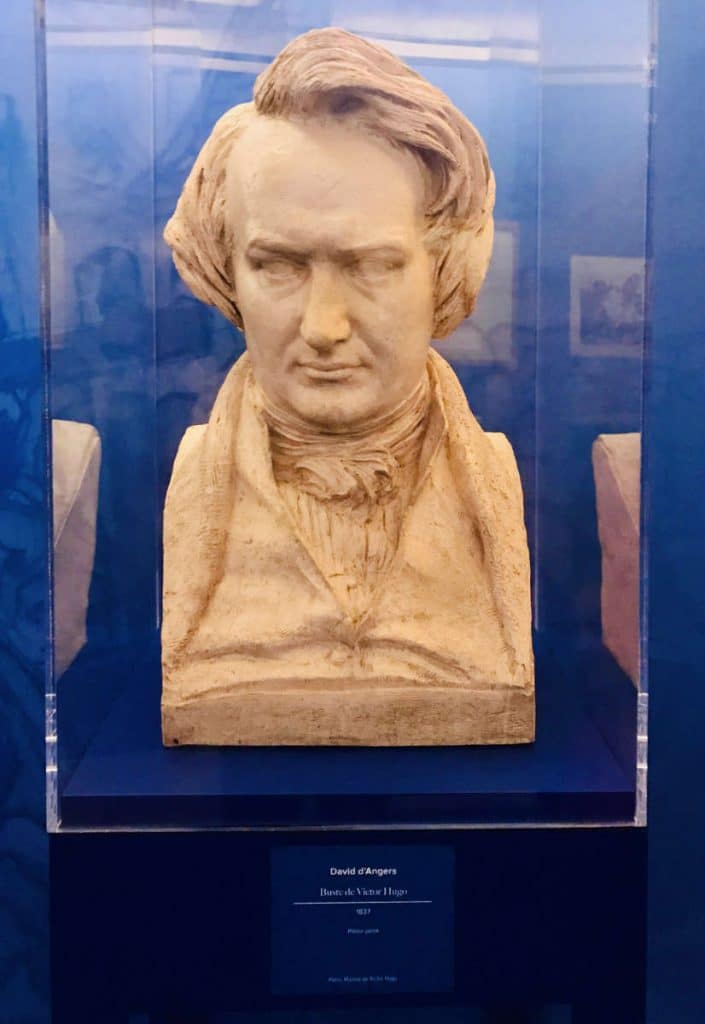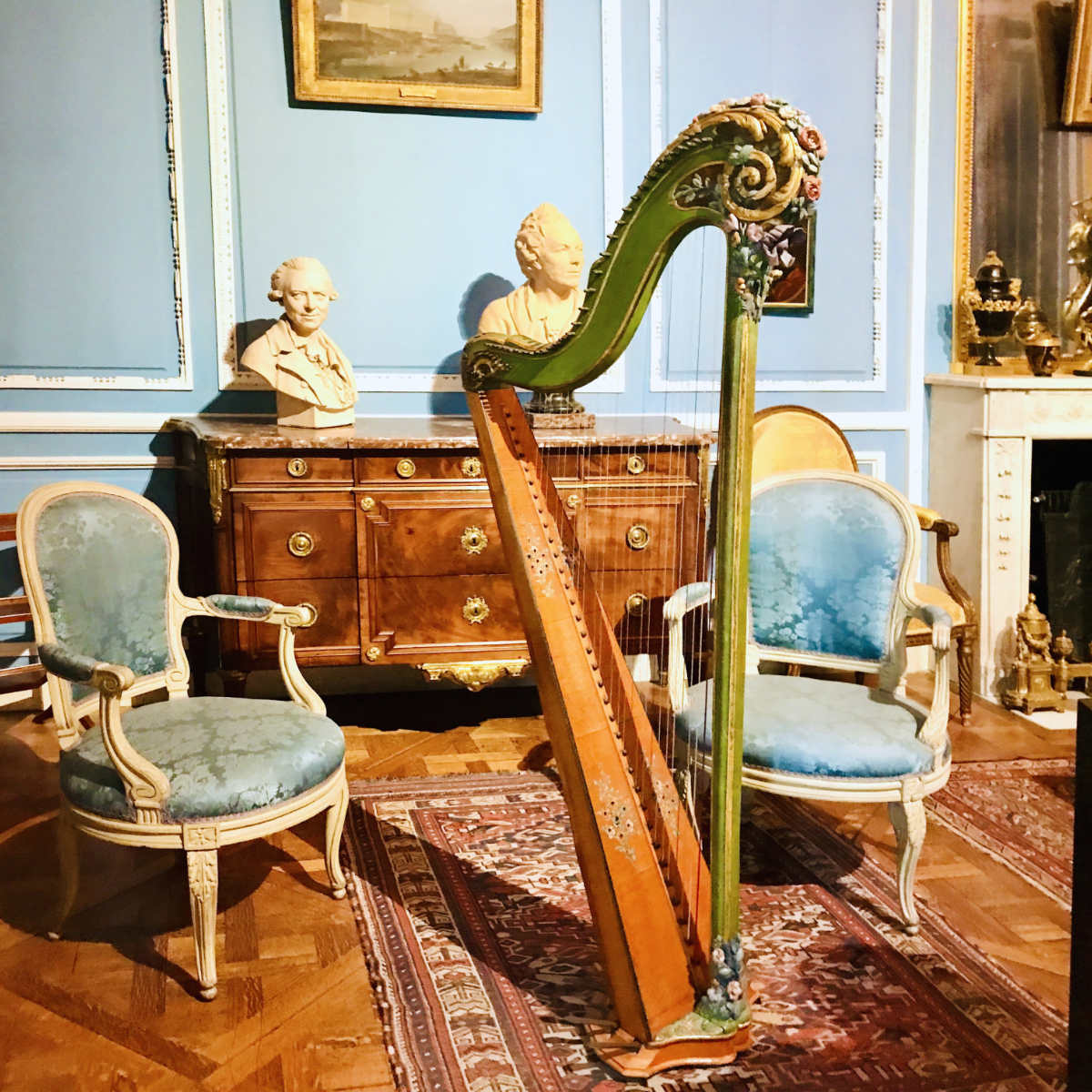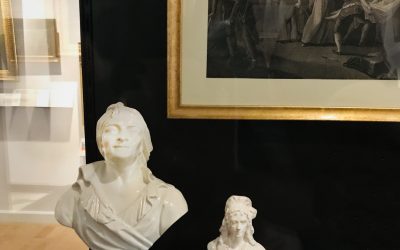The history of French poetry is as long and varied as the country itself. From the medieval poets to a more modern movement, many an acclaimed poet has played a leading role in the world of literature.
It is used to tell stories, to express emotions, and to convey thoughts that would otherwise remain unsaid. Some of most famous French poems are still widely celebrated and recognized, often turned into song or spoken in plays.
And with that, let’s have a look at the best French poets the country has produced. Allons-y!
- 1. Jacques Prevert (1900 – 1977)
- 2. Claude Rouget de Lisle (1760 – 1836)
- 3. Victor Hugo (1802 – 1885)
- 4. Charles Baudelaire (1821 – 1867)
- 5. Molière (1622 – 1673)
- 6. Arthur Rimbaud (1854 – 1891)
- 7. Jean de la Fontaine (1621 – 1695)
- 8. Antoinette Des Houlières (1638 – 1694)
- 9. Charles, Duke of Orléans (1394 – 1465)
- 10. Guillaume Apollinaire (1880 – 1918)
- 11. Paul Verlaine (1844 – 1896)
- 12. Anna de Noailles (1876 – 1933)
- 13. Alfred de Musset (1810 – 2 May 1857)
- 14. Edmond Rostand (1868 – 1918)
- 15. Stéphane Mallarmé (1842 – 1898)
1. Jacques Prevert (1900 – 1977)
Poet and screenwriter Jacques Prévert wrote a number of screenplays, but it is his poetry that are still taught in French schools today.
Along with collaborations with the French artist Marc Chagall some of his most famous works include:
- Paroles (Words) (1946),
- Spectacle (1951),
- La Pluie et le beau temps (Rain and Good Weather) (1955),
- Histoires (Stories) (1963),
- Fatras (1971),
- Choses et autres (Things and Others) (1973).
His poem Les feuilles mortes written in 1945 at the end of WWII, would go on to become an internationally renowned song, famous all over the world.
French renditions of Les Feuilles Mortes have been performed by Yves Montand and Édith Piaf, while the most famous English version was titled “Autumn Leaves”, and was sung by Frank Sinatra and Nat King Cole.
2. Claude Rouget de Lisle (1760 – 1836)
Claude Rouget de Lisle was a soldier in the French army, who doesn’t have many literary works to his name, but he does have one very famous poem: the French national anthem.
The original lyrics and music were written while he was stationed in Strasbourg. It was the height of the French Revolution, and King Louis XVI and Queen Marie-Antoinette were awaiting trial and the guillotine. Her brother was the Emperor of Austria, who was looking to restore the French monarchy.
Lisle started composing what would first be known as Chant de guerre pour l’armée du Rhin or “War song for the Rhine army”. The Rhine is a river that flows between French and German territory.
It was the height of the period known as Le Terreur (the terror) and lynch mobs, rapes, and violence were rampant. As you can see from the lyrics, this blood-thirstiness was reflected in the poem.
The poem eventually became known as Le Marseillais as it had become the battle cry of soldiers from the city of Marseille on their way to Paris. (There has never been much love lost between Paris and Marseille.)
Now officially the anthem of France, Claude Rouget de Lisle lives on in history.
3. Victor Hugo (1802 – 1885)
One of France’s most famous poets and writers has to be Victor Hugo. With a career spanning over 60 years, he wrote everything from satire to poetry, critical essays and historical odysseys.
He was renowned for his poetry collections, such as Les Contemplations (The Contemplations) and La Légende des siècles (The Legend of the Ages). In France, his poems are still recited by children during poetry class in schools.
And while his most famous works were the novels Les Miserables and Hunchback of Notre Dame, many of his time-honored works including love poems, kids’ poems, and quotes live on today.

But Victor Hugo did more than just write poetry and fictional novels. He was also a passionate supporter of republicanism after the Revolution, and served in politics as a deputy in the Assemblée Nationale, as well as a senator.
He gave several speeches to end poverty, as well as to establish universal suffrage (for women) and free education for all children. His advocacy in the 19th century to abolish the death penalty became renowned internationally. For his works and service to the French nation, he is buried in the Panthéon in Paris.
4. Charles Baudelaire (1821 – 1867)
Charles Baudelaire was a noted French poet, essayist, and art critic. He wrote extensively about his artistic contemporaries from Edgar Allan Poe, Richard Wagner, and the French artist Eugene Delacroix. He was also close friends with artist Édouard Manet.
But it is for his poetry that he is remembered today. One of his most famous poems was the Albatros which was written in 1859. It was actually based on the poet’s trip as a young man with his stepfather.
Another of his famous works was a book of poetry titled Les Fleurs du mal (The Flowers of Evil), about the rapidly industrializing Paris during the mid-19th century.
A contemporary of Victor Hugo, Baudelaire became one of the top French poets of his time. He would continue to lead a rather lavish life, however, dying at the age of 46.
5. Molière (1622 – 1673)
Jean-Baptiste Poquelin is better known by his stage name Molière, one of the greatest French poets and writers the country has ever produced.
A playwright, actor, and poet, his works are regarded as an extraordinary contribution to the French language and world literature. He is most well-known for his comedies, farces, tragi-comedies, and more.
His famous literary poems include:
- Remerciement au Roy, 1663
- La Confrérie de l’esclavage de Notre-Dame de la Charité
- Au Roi, sur la conquête de la Franche-Comté, 1668
- La Gloire du Val-de-Grâce, 1669
However, he is best remembered for his poetic verses in his plays and productions like the Misanthrope, Tartuffe, and the School for Wives and Learned Ladies.
The renowned Comédie Française theatre in Paris has performed more of his works than any other playwright in history.
6. Arthur Rimbaud (1854 – 1891)
Young Arthur Rimbaud abandoned his formal education to run away to Paris, but that did not stop him from becoming one of the best known French poets of his generation.
One of his most beautiful and well-known French poems is Le Dormeur du Val about a dead soldier, was written in 1870 at the height of the Franco-Prussian war.
The Germans had invaded France and laid siege to Paris, forcing Emperor Napoleon III to abdicate. At the time, he was 16 years old, too young to join the army himself.
He actually produced most of his work as a teenager and young adult, stopping writing literature at age 20 after his last major work, Illuminations.
He is believed to have had a romantic relationship with fellow poet Paul Verlaine (see below). Rimbaud travelled extensively after retirement, dying of illness at the young age of 37.
Le Dormeur du Val would become one of the most famous French songs of all time, with many adaptations, from classic male singer Michel Sardou to French rappers Booba and MC Solaar.
7. Jean de la Fontaine (1621 – 1695)
Poet Jean de la Fontaine is most well known for his fables that were used to teach right from wrong. He would write over 239 poetic fables in verse over a span of 12 books. He remains one of the most widely read poets of the 17th century.
La Fontaine worked for the tragic Nicolas Fouquet who was then the French Superintendent of Finance, and after the latter’s fall from grace, La Fontaine would also find himself under suspicion by Sun King Louis XIV.
He was a contemporary of Molière with the two being almost of the same age. However it was only in 1682 at 60+ years old that he was admitted to the Academie Française and recognized as one of the foremost “men of letters” of France.
8. Antoinette Des Houlières (1638 – 1694)
Antoinette Du Ligier de la Garde Deshoulières was a French poet renowned for her beauty and her intelligence. With her father serving as Maître d’hotel to French queens consort Marie de Medici and Anne of Austria, Antoinette grew up in the royal courts.
Married at 13, she attracted the attention of the prince of Condé, and became a favorite in the court of Sun King Louis XIV for her literary prowess and her looks.
Throughout her life she would write a wide variety of poems from odes, songs, ballads, and more. Her daughter Antoinette-Thérèse Des Houlières was also a poet, and it is she who published a lot of her mother’s works:
- Œuvres de Madame Deshoulières et de Mademoiselle Deshoulières. Tome 1
- Œuvres de Madame Deshoulières et de Mademoiselle Deshoulières. Tome 2
- L’enchantement des chagrins : poésies complètes
- Les Amours de Grisette. Suivis de La Mort de cochon par Mlle. Deshoulières.
The poet, philosopher, and writer Voltaire declared her the best of women French poets.
9. Charles, Duke of Orléans (1394 – 1465)
Medieval poet, Charles of Orléans has sometimes been called the father of French poetry. The era was that of the 100 year war between France and England, with both sides fighting for the French throne.
Born in Paris, he was in line to the French throne as the nephew of King Charles VI of France. He would inherit his father’s duchy at the young age of 13 after his father’s murder.
At the battle of Agincourt in 1415, at the age of 21, young Charles of Orléans was taken prisoner by the English and would spend the next 25 years as a prisoner of war before his return to France.
It would be during this period and after that Charles wrote some of the most beautiful poetry in the French language, leading his contemporaries and successors to follow in his footsteps.
Many of his poems were to his wife Bonne, who sadly died before he was released from captivity. He is accredited to written the earliest known Valentine’s day card, as he wrote several poems about the day.
He wrote more than 500 poems in both French and English, during his captivity. He was released after paying a substantial ransom, eventually settling in France to a literary life in the Blois in the Loire Valley, at his home he inherited, Château de Blois.
Here he hosted meetings among like-minded nobility, and offering literary tournaments and prizes. He died in Amboise at the age of 70. (His son would go on to become King of France as Louis XII.)
10. Guillaume Apollinaire (1880 – 1918)
Born Wilhelm Albert Włodzimierz Apolinary de Wąż-Kostrowicki in Italy, Guillaume Apollinaire would become a naturalized French citizen and write one of the most famous poems about Paris of all time, Le Pont Mirabeau (which was also turned into a song.)
Moving to Paris at the age of 20, this legendary French poet was also well known as a playwright, short story writer, novelist, and art critic. Hanging out in Montmartre, he was friends with contemporaries such as Pablo Picasso, Henri Rousseau, Gertrude Stein, Marc Chagall, and Marcel Duchamp.
Some of his other most famous works include:
- Le Bestiaire ou Cortège d’Orphée, 1911
- Alcools, 1913
- Vitam impendere amori, 1917
- Calligrammes, poèmes de la paix et de la guerre 1913–1916.
Interestingly, Apollinaire was implicated in one of the biggest mysteries of his day, the theft of the Mona Lisa from the Louvre along with other statues. On 7 September 1911, police arrested but released him a week later.
The theft of the statues had been committed in 1907 by a former secretary of Apollinaire, Honoré Joseph Géry Pieret. His friend Picasso was also implicated, having bought one of the statues from Pieret, though they were both later exonerated, when Louvre employee Vincenzo Peruggia was found with the Mona Lisa.
Two years after being wounded in WWI, Apollinaire died during the Spanish flu in 1918 and was honored as a soldier and declared “Dead for France” (Mort pour la France).
11. Paul Verlaine (1844 – 1896)
Paul Verlaine was born in Metz in a somewhat well-to-do bourgeoisie family, moving to Paris at a young age.
He would publish his first poem Monsieur Prudhomme at the age of 19 in August 1863. Entering in the literary world, he would soon start to meet contemporaries of his day.
His most famous works include:
- La Bonne Chanson (1870)
- Romances sans paroles (1874)
- Sagesse (1880)
- Jadis et Naguère (1884)
- Amour (1888)
- Chansons pour Elle (1891)
- A series featuring other poets called Les Poètes maudits published by in 1884.
A few years after getting married to a woman named Mathilde Mauté and forming a family, he would encounter the poet Arthur Rimbaud, beginning a rather tumultuous affair with him. In July 1873, in a drunken and jealous rage, he fired 2 shots at Rimbaud, lightly wounding him. He would nevertheless be arrested and imprisoned at Mons for two years.
Continuing his descent into drugs and alcohol, he would pass away at the age of 51 in Paris.
12. Anna de Noailles (1876 – 1933)
Born Princess Anna Elisabeth Bibesco-Bassaraba de Brancovan in Paris, Anna de Noailles was a descendant of Romanian royalty who became one of France’s top female poets and writers.
She was the first woman to become a Commander of the Legion of Honor, and she was honored with the “Grand Prix” of the Académie Française in 1921.
Married to the 4th son of a Duke, she and her husband were the toast of Paris, maintaining relations with the intellectual and literary set of the day. Amongst their friends were well known names like Marcel Proust, writer Colette, and Jean Cocteau.
She was also a muse for several French artists including a sculpture by Auguste Rodin and paintings by Antonio de la Gandara, Kees van Dongen, Jacques Émile Blanche. Her own famous poems include:
- Le Cœur innombrable (1901)
- L’Ombre des jours (1902)
- Les Éblouissements (1907)
- Les Forces éternelles (1920)
- Poème de l’amour (1924)
A New York Times writer in 1929 wrote that she was “one of the finest poets of present-day France.”
13. Alfred de Musset (1810 – 2 May 1857)
French poet and dramatist Alfred de Musset grew up in a wealthy family in Paris, and by the age of 20 was already well-known for his literary works as well as his rather dashed good looks.
He had a legendary love affair with another famous French novelist George Sand. The story of their relationship is told from his point of view in his novel La Confession d’un Enfant du Siècle (The Confession of a Child of the Century) which was published in 1836.
One of his most famous love poems was Rappelle-toi, meaning “remind yourself” is from his collection called Poésies nouvelles (“New Poems”) published in 1850.
At the forefront of the French romantic literary movement, he was appointed librarian of the French Ministry of the Interior. He would write dozens of poems, short stories, plays and novels over his career, dying at the relatively young age of 47. Still renowned, Céline Dion recorded a song in 2007 called “Lettre de George Sand à Alfred de Musset“.
14. Edmond Rostand (1868 – 1918)
French poet and writer Edmond Rostand is best known for his most famous work, the Cyrano de Bergerac which was published in 1897.
Born in Marseille, his father was an economist and poet who translated and edited the works of the ancient Latin poet Catullus in French. Under his father’s influence, young Edmond would study literature, history, and philosophy in school.
By 20 years old he was writing plays and poetry, and soon he was writing for top stage actresses of the time like Sarah Bernhardt.
Written in poetry and verse, his other famous works include:
- Les Romanesques (1894)
- La Princesse Lointaine (1895)
- L’Aiglon: A Play in Six Acts (1900)
- Chantecler: A Play in Four Acts (1910)
In 1902, he became the youngest writer to be elected to the Académie française. He was married to the poet and playwright Rosemonde-Étienette Gérard who was commended by the Academie in her own right. He died at the age of 50 during the Spanish flu of 1918.
15. Stéphane Mallarmé (1842 – 1898)
Stéphane was the pen name of Étienne Mallarmé, a French poet and critic whose work in symbolism inspired many of those who came after. Born in Paris, he became an English teacher to pay the bills before finding success as a poet.
The death of his young son plunged him into a depression, and he threw himself into his work as a way to find solace. His most famous works include:
- Hérodiade (1864-1887)
- L’Après-midi d’un faune (1865-1876)
- Brise Marine (1865)
- Don du Poème (1865)
- Sonnet en X (1887)
- Un coup de dés jamais n’abolira le hasard (1897)
He is today considered one of the greatest poets of the modern French language.

If you enjoyed that article, you may like to read more about famous French writers. A bientôt!




